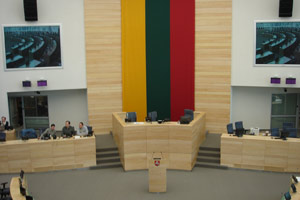Energy, EU – Baltic States, Legislation, Lithuania
International Internet Magazine. Baltic States news & analytics
Sunday, 01.02.2026, 20:14
Lithuanian government approves of energy independence strategy
 Print version
Print version |
|---|
It aims at the following three targets.
First: energy independence from currently dominant single source. The achievement of this target by 2020 will provide Lithuania with alternative means of supply of energy resources, adequate and efficient energy production capacities, operating transparent market and competitive prices for consumers.
Second: Lithuania's competitiveness. 3-4 billion litas currently spent on imports of energy resources will remain in Lithuania and strengthen our state's economy and raise competitiveness. Investment in the energy sector will create five to six thousand new jobs and encourage the growth of construction and services businesses. The implementation of energy efficiency measures provided for in the strategy will bring down the annual household heating costs by 500 litas.
Third: sustainable development. With a view to encouraging use of renewable energy resources, Lithuania is going eventually to completely abandon fossil fuels with greenhouse effect, as well as to increase energy efficiency, which is now 2.5 times lower than in the rest of the EU.
All the three targets of the energy independence are aimed at ensuring long-term interests of energy consumers. These targets will be achieved through the implementation of the strategic plans regarding the Visaginas nuclear power plant, LNG terminal, gas and electricity interconnection projects and the transposition of the provisions of the EU Energy Package III, and other EU legislation into national law.








 «The Baltic Course» Is Sold and Stays in Business!
«The Baltic Course» Is Sold and Stays in Business!

